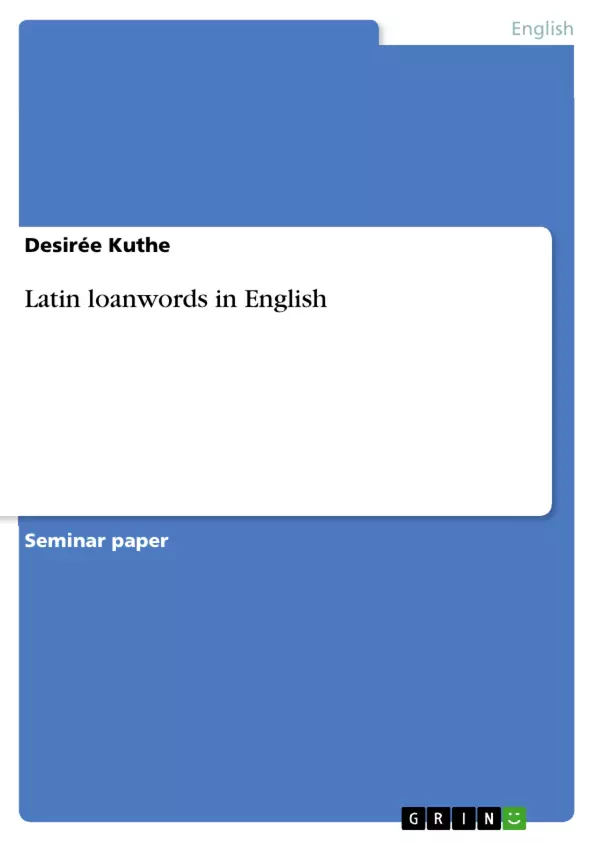Latin has always had a major influence on the English lexicon, from the Germanic period – even during the continental era, before the Germanics reached the British Isles - until today. It has also been the first and most consistent of the many languages English has borrowed from, during its gradual development into what we nowadays know as ‘English’. More than 300 words have even “survived” into Modern English in their original Latin form, words such as actor, labor, elevator and vertigo.
The accent of this paper, which will explore the respective loans English made in its various historical periods, will be on Old English, as it can most interestingly be divided into three periods of borrowing from Latin, the third of which, according to Albert C. Baugh and Thomas Cable, “marks the real beginning of the English habit to freely incorporate foreign elements into its vocabulary.”
Table of Contents
- I. Introduction
- II. Old English
- 1. The Continental period
- 2. The Settlement period
- 3. Christianisation
- III. Middle English
- IV. Early Modern English and Modern English
- V. Bibliography
Objectives and Key Themes
This paper explores the influence of Latin on the English language, focusing on the historical periods of Old, Middle, and Modern English. It aims to investigate the various ways Latin loanwords entered the English lexicon, examining the different stages of borrowing and their impact on the development of the English language. The paper also highlights the significance of Vulgar Latin as the source of many loanwords.
- Influence of Latin on the English Lexicon
- Historical Stages of Latin Loanwords in English
- Impact of Latin Loanwords on English Language Development
- Role of Vulgar Latin in English Vocabulary
- Analysis of Latin Loanwords in Specific Historical Periods
Chapter Summaries
- I. Introduction: This chapter introduces the topic of Latin loanwords in English, emphasizing the continuous influence of Latin on the English language throughout history. It highlights the significance of Latin as the primary source of borrowing for English and provides an overview of the paper's focus on Old English borrowing.
- II. Old English: This chapter explores the estimated 500 lexical items borrowed during the Old English period. It emphasizes the high regard for Latin during this period, attributing it to the Anglo-Saxons' desire to learn from the Roman civilization. The chapter further divides the Old English period into three distinct stages of Latin borrowing.
- 1. The Continental period: This section examines the first stage of Latin borrowing, during the time when the Anglo-Saxons inhabited the European continent. It highlights the various channels of interaction between the Germanic tribes and the Roman Empire, such as military encounters, commercial activities, and Roman settlements, leading to the adoption of Latin words.
Keywords
Latin loanwords, Old English, Middle English, Modern English, Germanic tribes, Vulgar Latin, Classical Latin, vocabulary development, historical linguistics, English language history.
- Quote paper
- Desirée Kuthe (Author), 2007, Latin loanwords in English, Munich, GRIN Verlag, https://www.grin.com/document/77756



